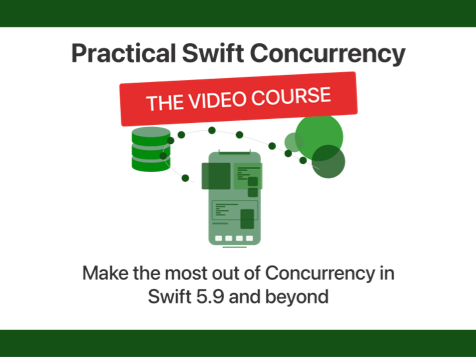Surviving a start-up’s bankruptcy
On a Tuesday almost two months ago, near the end of april, me and my coworkers received an email about an important meeting the next. We knew that something was going on, the look and feel of this email wasn't the same as usual. This one seemed a bit darker, a bit more serious. On Friday you could feel the tension in the office, people were speculating a bit and just acting different than usual. But we all had jobs to do and we tried to do them just like we always did. But it turns out that this tension and the feeling we al had wasn't wrong.
When the meeting actually went down we heard that an investor had backed out of our start-up. Resulting in an inability to pay the bills and sending all of us home until we would know more. What followed was a pretty strange, exhausting and tough period where I learned new things about myself, my work and how to keep busy. I would like to share this experience with you in this blogpost to try and explain how weird of a period bankruptcy can be from an employee's perspective.
Stage one: registering the events that happened
Since the big announcement was made on a Friday, we actually had a few drinks afterward. It was different than usual, but we had fun, we laughed, talked about how much of a great time we had and that it wasn't over just yet! We could still be bought, an investor might pop up soon and we'll all be back to work in no time. Then Monday came along and I didn't have to go to work. There really wasn't much for me to do actually. So I started my week with just taking the day off. In the back of my mind I had this idea that I was getting payed anyway, so I might as well enjoy this time off.
At first I did pretty well, the first couple of days were pretty laid back, I started working on a side project called "Cijfer Hulp". It's a simple app for Dutch students to keep track of their grades and what grade they need to maintain a great average. But after a couple of days I realised that my job probably wasn't going to come back. This was a pretty huge blow, I loved my job! I enjoyed going there every single day, and to realise that a 10 minute meeting was the last thing I'd ever do at this company was a pretty big blow.
Stage two: finding purpose, keep going
When I established with myself that I was probably going to be out of a job soon I started to look for a new job. This went pretty well at first, a few companies responded to my applications rather quick and I had set up some meetings in no time. However, I felt like I lacked a purpose. My side project was finished in about 8 days so there wasn't much for me to do either. Staying in bed until 10:00AM, 11:00AM or later started to become easier and easier and falling asleep at night became harder and harder. I grew frustrated and irritable very quickly and while the meetings with potential employers were fun, they didn't give me a sense of security.
The fact that I had no job, a few potential employers and the possibility of choosing one to work for and not knowing when I would know more about my current job was troubling me. One of the things that kept me thinking was the fact that my current employer still didn't officially go bankrupt. We were all sitting at home, waiting for the court to pass a verdict. Three weeks went by with no news. It was just about time for us all to get payed, but the money wouldn't come since there was no money. In The Netherlands there's a company that will take over all of the salary payments from an employer if they can't pay anymore, but this only happens after the court has declared bankruptcy. At this point it was clear that verdict would have to become bankruptcy. It was just a matter of when.
During this first month I had days where I was just frustrated, grumpy and tired all day. Keeping myself busy just felt pointless. I lacked purpose, everything I did was just filler to get through another day of not having to do anything. On other days I was motivated, I though about maybe going freelance or starting another side project. These days were quite fun actually because they had purpose and meaning. Whenever I'd go and have a cup of coffee at some company I always felt pretty satisfied, I was working towards something. However, my overall mood wasn't too good. Having no responsibilities or purpose is taxing and I wouldn't recommend it to anybody. Doing small side projects is a smart idea. What also helped was to just head out of the house around 09:30 and go to the library to work there. Whenever I did this I was at least double as productive compared to staying at home all day.
Stage three: something look forward to
After a little longer than a month I found an employer that I wanted to work for. And they were excited to hire me as well! This felt like a huge win. No matter what was going on at my current job, I knew what was next. And the best part, just a few days after this I also got the news that me and my coworkers were now officially fired and the company had been declared bankrupt. However weird it may seem I was very relieved with this letter. Finally some closure, finally a timeline for it all. Just one more month and then I would start at my new employer, knowing that the current situation would be fully handled and I could finally start working towards getting the salary I still needed from the month of sitting at home. All of this had been so frustrating, especially not knowing what's next and when it was coming. So for all of this to fall in place so short after one another was truly a blessing.
Tips for people who might find themselves in a similar situation
My most important tip is to try and keep up some sort of schedule. Your work rhythm probably provides some stability to you and your mind. Don't break this, try to go to a public library or if you're comfortable working from home, try to spend the day working on things. Maybe a side project, maybe some blog posts or maybe do some chores that you needed to get done anyway. You don't have to spend your whole day programming, just make sure you're busy.
Also, i would recommend to start looking for jobs right away. Just go and have some cups of coffee with people. You don't have to formally apply everywhere, just get to know some people. Expand your network. It might seem a bit pointless and hard at times, but it's really worth it. The nice thing about being in this situation is that there's no rush in finding a new job. You can take it easy, you can really browse around for a nice place to work at.
It's okay to be sad or feel down about the situation. When I had a bad day sometimes I thought that I had messed up. I should have been able to see this coming or do something, or whatever. It's tough to realise that it's something you might not have been able to see coming, something that you lack control over and it's okay to be bummed out. If you loved your job it will have huge impact on you when that suddenly disappears. This is also the reason why I recommend to try and keep up our rhythm. It will help to keep your mind from wondering and it will help you wit that feeling of having no purpose.

